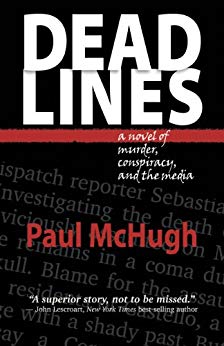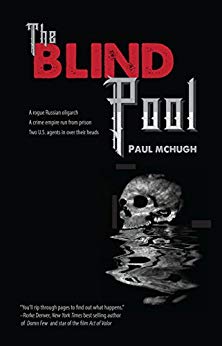
A bronze statue of author Jack London in a vigorous pose juts up at Jack London Square (well, where else would it be?) in Oakland CA. It bears a plaque that bears a quote from Jack that bears repeating.

“I would rather be ashes than dust. I would rather that my spark should burn out in a brilliant blaze than it should be stifled by dry rot. I would rather be a superb meteor, every atom of me in magnificent glow, than a sleepy and permanent planet…”
Such a marvelous motto for that manic addict, Scribblin’ Jack!
Don’t get me wrong, I do hold a decent opinion of this guy as a writer as well as an adventurer. For a fully self-taught idealist from his era, the man was remarkable. Yet while Jack could appear charismatic, he also could act like a preening, temperamental narcissist—and thus oft proved himself a sore trial for people in his vicinity.

I blame this on insecurity. London had more reasons than most to harbor insecurity in whopping abundance, starting with big doubts about his parentage. Even so, the guy was correct about more than one item. An inability to keep still was his biggest truth about himself.
All of us blaze steadily through life, shedding particles of speech and deed in a broad, long, brilliant streamer as we fly. Admittedly, some of those swirling ribands of smoke and fire burn much hotter than others. But, “sleepy and permanent planet?” C’mon, Jack. You’re trying to forge a false equivalence, here. We all possess relative degrees of motion. Someone might grow sleepy, yet never permanently.

It might occur when we die, I’ll grant you that. But perhaps not even then. The huge whirligig of our world just ain’t built that way. As it is, even a good, short rest can be a rare treat.
WAKES OF OUR PASSAGE
That means we constantly effuse abundant evidence of ourselves, whether we wish to or not. Even if we engage in ardent efforts at concealment, subterfuge, or mendacity, such fancy maneuvers always leave their own peculiar tracks.
Therefore—if we happen to be fiction writers—that same process should be true of every single one of our characters. Throughout our stories, the characters ought to shed constant clues, some subtle and some not, as to their genuine inner natures.

Highly skilled storytellers are justly praised if they demonstrate an ability to sketch a believable character in a few deft lines. Yet I think that this should by no means ever be the sum total of a presentation.
Because then, wherein lies the fun? What about all the rest of that tale? What of stimulating, then feeding, some reader curiosity? What about development, complications and contradictions, a character’s trajectory in the plot, his or her influence on other characters?
How about making the prospect of a dramatic self-discovery loom?
Deft sketch-work should at most aim to create a first impression. A portrait that never shifts or evolves, well, that device should be confined to secondary or tertiary characters. Like good ol’ Polonius, sufficient to “swell a progress, start a scene or two.”
Why?
Because: basically, if discovery doesn’t happen, and if it doesn’t keep on happening throughout your tale, then no story can actually occur.
OUR ILLUSION OF MASTERY

A fine summary of our deepest fantasy was the key line and chorus (and title) of, “Everybody Wants to Rule The World” (from Tears for Fears in 1985).
Each of us does in fact rule a world. About 100 trillion cells make up a typical human body. Let us also give a special shout-out to the 86 billion neurons or so that light up the magic cauliflower of a human brain. For a while, we get to be captains of this whole show as it sails onward through space.

But how much and how well do we care for this vessel and its loyal crew? Do we try to keep the brightwork polished and the deck holystoned, maintaining everything shipshape and Bristol fashion, or do we let our ship more or less careen along on its own, haplessly buffeted by wind and wave? What sort of stuff do we demand to carry for our cargo, and what are we willing to jettison to increase our speed, improve stability or heighten our buoyancy so we can reverse off a sandbar when the tide rises?
All those tiny cellular beings hold hands to create a scaffolding or structure or bio-mechanism wherein lodges our sense of a self, like a shining hologram that can endure only for as long as our power stays on. And that central entity boasts an array of obvious qualities as well as deeply hidden ones. Some of these elements are subject to being shaped or refined by our supposed will power, yet some aren’t. In any case, there’s no such thing as free will, since there’s always a cost of some kind for every single one of our choices.
This is the kind of complicated entity we seek to model whenever we try to create a character.
OUR WELL OF SECRETS
It’s a trope of many a writing workshop that an author must know a character’s deepest secret. A further refinement of this notion is that your readers don’t need to know this secret, and the character himself or herself might not know or even suspect it. Nevertheless, you as author should maintain status as a reigning expert on the topic.

In the first novel I wrote after I left newspapering, “Deadlines,” I cooked up a central character named Colm MacCay. That book was designed as a journalism murder mystery, crafted in the Columbo mode. Which is to say, right at the start, we know who gets killed and who did it and more or less why. The main tension then comes from watching the good guys try to figure it out, and from discovering if the bad guys will ultimately face justice.
However, I decided to layer in another mystery, namely, who the heck is this MacCay guy, and how did he become the strange man that he is? I amused myself—and hopefully also my readers—by dropping clues as to MacCay’s character and his past throughout, while saving my biggest reveal about him for the final pages.
That’s not the only way to do it, of course. But there’s a lot to be said for engineering a progressive set of revelations. This is how we get to know people in real life: bit by bit. Adopt that gradual approach in your storytelling, and automatically your tale gains verisimilitude. By which I mean, it seems much more lifelike.
THE PRINCIPLE OF RADIATION
Time for me to switch metaphors, hopefully without scrambling them!

Let’s move from comets to galaxies. Galaxies are kind of giant comets anyway; our own Milky Way is shooting through the cosmos at an estimated 1.3 million miles-per-hour. That’s fast! (Meanwhile, our solar system rotates through our galaxy at 504,000 mph, while earth rotates around the sun at 67,000 mph. Feeling vertigo yet?)
Anyway, at the core of most galaxies—if not all—are black holes, ultra dense, mysterious bodies with gravitational fields so strong that not even light can escape. And yet as these black holes slurp up everything around them, they still broadcast radiation. That’s one of the ways we know they exist, as well as where they’re located.
Your character’s truth should be like this. Even if invisible, it should steadily and reliably broadcast evidence of itself.
Some of those clues should be words and deeds, of course. But they can also be preferred bits of food or drink, style of clothing, a way of walking, of making eye contact or not, and various possessions—either abandoned or kept close.

All of these things should radiate out of your character’s essential nature, and so also leave a trail of clues (so to speak) that lead back in. As your story proceeds, the readers can then use their powers of deduction or induction to begin to triangulate that character’s truth. And then the real big fun begins, as, so empowered, they try to predict what will happen in your story next.
What’s the diff between induction and deduction, you ask? Well, induction means you observe examples and then reason your way to a general concept. Whereas deduction is the reverse. You start with general principles and then use observation to peel your way down to a specific case. For Sherlock, that meant slicing off the impossible to arrive at the possible, even if it seemed improbable. Another way to put it: the difference between deduction and induction is the difference between a striptease and a fashion show.
TO MAKE A CASE-IN-POINT

I have a new novel coming out in May from Bronzeville Books. Its title is “Splinter,” and I commonly describe it as a WWII adventure/romance, set in Norway at the start of the Nazi occupation. Its lead character is a teenager named Kristian Thorsen, who happens to be standing on the banks of the Oslo Fjord as the first German warship charges into Norwegian waters.

There are several ways I try to help readers triangulate Kristian’s truth. And one of my favorites is the manner I track his possession of various knives that enter his ownership or fall out of it.
Because Kristian is a fisherman’s son, his first expertise is with a fillet knife, which he uses to gut salmon and cod. After war comes to his country, and he escapes to Britain, Kristian’s next blade is a Wilkinson hunter’s dagger—and he is trained in “wetwork” with it by a Royal Marine commando. When that’s taken away from him by a gang of partisans that captures him in Oslo, he replaces it with another fillet knife. This is an old one that Kristian finds in a locker that belongs to his dead father. Without getting wildly oedipal about the meaning here, this indicates a growing ownership of his entire past, tragedies included, as well as a dawning ability to step into his father’s boots.

Finally, after a desperate fight in a Stavanger train yard, Kristian escapes with his life. He also holds an ebony-handled ceremonial dagger that he has snatched from an SS officer. Suffice it to say this officer does not surrender his knife willingly. When Kristian returns to Britain, bearing valuable intelligence, he awards this dagger to his principal handler in the SIS—the British Secret Intelligence Service (these days also known as MI6).
I’ll spare you any revelation here of what such a transfer might signify. If you feel curious, I’ll let you figure that out when/if you read my book, should you feel so moved.
But suffice it to say that “Splinter” is both a noun and a verb. It can suggest that something has shattered, like Norway’s tranquility and hope for neutrality. Or it can mean a sharp sliver that pokes into somebody in a highly painful manner. That’s the sort of presence Kristian hopes to be, as he penetrates ever deeper into Norway’s resistance movement.

In a sequel, “Splinter II,” I plan for Kristian to finally get his hands on a Sykes-Fairbairn fighting dagger, a famed stepson of the Wilkinson blade.
In the broad particle stream left by Kristian’s blazing progress in my story, several blades fly, glittering and gleaming, while they sketch out a path through time, space, and my plot.








